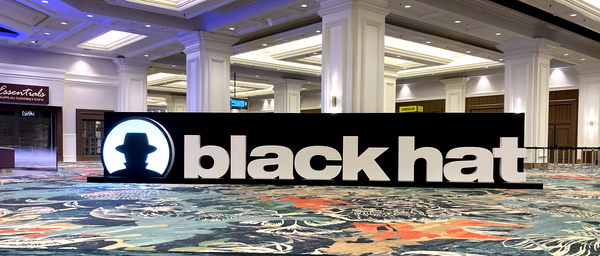Tips & Tricks for Passing the CompTIA Network+ Exam
In keeping with the long line of tech writers who blog about passing their <insert industry certification> exam, here is how I passed the CompTIA Network+ Exam, version N10-008.

My Background
First, a little bit about me to add some context. CompTIA recommends you have the following BEFORE attempting the exam:
CompTIA A+ Certification and a minimum of 9 to 12 months of hands-on experience working in a junior network administrator/network support technician job role
I had none of these things before I showed up on test day.
I spent the last 20 years of my professional career serving in the U.S. Marine Corps as a Combat Engineer. It is a job whose only technology requirement is navigating the Microsoft Office suite of applications and handling a mine detector. This doesn't mean I started this process completely ignorant of networking concepts. Growing up, I have always been a tech geek: I completed several technology classes in middle and high school, I've done hardware upgrades on my computers, and I'm always the guy friends and coworkers turn to when they need help troubleshooting computer problems. In 2017, I began attending online college classes, working towards a degree in Information Systems Management. As part of my coursework, my classes covered subjects on networking, cybersecurity, and programming. And over the past seven years or so, I've been closely following the cybersecurity industry and reading articles daily on technology trends.
All this to say that I have never worked a day in my life as a junior network admin, nor did I attempt the CompTIA A+ exam. I gained my knowledge and experience through college work and self-study. Don't let anyone gatekeep you; we all come from various backgrounds, and the paths into tech are just as diverse. If you don't have the CompTIA recommended background requirements, don't fret; that just means you might need to work a little harder to understand certain concepts, or it may be a better idea to attack the A+ cert if you have little experience with computers.
1. Schedule the exam
Last year, I intended to dig in and study for a marathon series of certification exams, including the Net+ exam. As is the case with many people, life has a way of handing you a few 'Draw 4' cards when you least expect it. Despite my high aspirations, I neglected my studies, only occasionally referencing material I spent a good deal of money on (more on that in a bit). It wasn't until I secured a test date that my willingness to bury my head in the books kicked in (thanks in large part to The Leader Transition Institute).
The exam costs $358, which is not cheap if you're paying out of pocket. Since I'm on active duty, I used the Marine Corps COOL program, which covers the cost of an exam voucher for Marines who qualify. Quick note: I required a waiver from the COOL program to receive my voucher since my primary job does not directly relate to the certification; I had to provide my degree as proof that I had a chance at passing the exam. Some organizations will cover the costs for these exams, particularly if they are required for your job, or you can research other programs that can assist with exam fees. Whether you do it through your bank account or someone else's, make it happen. The adrenaline kicks in once that date is set, and 'super learning mode' is activated. I'm fairly certain that's the scientific term for it.
2. Gather your study materials
The number of study material options is daunting; however, these are the tools I used.
- Testout Network Pro - I was introduced to Testout as part of my degree program with UMGC. I thoroughly enjoyed using the platform while in school, so I returned to it a few years later when it came time to study for my Net+ exam. Testout provides videos, quizzes, labs, factsheets, and practice exams on-demand from their website. It is a lot of information, but the course walks you through everything you need for the Net+ exam. Unfortunately, it's not a budget-friendly option. The Network Pro standalone course will put you back around $300, which provides you with one year of access to the materials and a Testout Pro Certification exam. It does not include a voucher for the Net+ exam, but since CompTIA acquired Testout, that might change in the future.
- All-In-One CompTIA Network+ - The book covers all of the Network+ domains and includes end-of-chapter quizzes and online materials (tests, labs, and videos). I used the book principally as a quick reference for terms and concepts. It also helped to break away from a computer screen and read a chapter as the last part of my study sessions. In each chapter, the book provides historical context for where the technology or processes originated from, which can help build a better understanding of how we employ them today. The glossary came in handy when I needed to quickly look at a term and find a simple definition relevant to the exam, which was surprisingly difficult to do compared to doing a Google search.
- Professor Messer's Network+ Training Course - I watched these videos daily during my breakfast routine and sometimes in the evening before a study session. Professor Messer does a great job of breaking down many of the more complex concepts into manageable chunks that complement how Testout and the All-In-One series presented the information. His videos served as a good refresher for subjects I already learned in a Testout module, or acted as a primer for an upcoming lesson. The best part is that all of the videos are free; you only pay for the additional course material offered on Professor Messer's website. I didn't use his additional course material only because I was already enrolled with Testout.
- Quizlet.com - Flashcards have been a go-to for studying since the Stone Age, but I don't have the time to fill out a hundred note cards, nor do I wish to carry a stack of cards with me everywhere I go. Thousands have come before me and built study sets on Quizlet, but I found that making one tailored to my needs worked best. The basic flashcard system is free to anyone, or you can pay the subscription fee to access quizzes and exams based on the terms you (or someone else) provided. I used Quizlet to help memorize the major protocols, ports, IP ranges, and other obscure terminology. If I missed a question on a practice test, I'd add that missing information to my set, so it made it easy to focus on my weak areas. Anytime I had a free moment, I would pull up the app on my phone or iPad and run through a few terms, which helped keep the info fresh in my memory.
3. Study. Study. Study some more.
Consistency is your friend when it comes to studying. Choose a time and location that works best for you. Keep your schedule, whether it's first thing in the morning, after lunch, or just before bed. I opted for immersion; I watched a few videos while eating breakfast, squeezed in some flashcards throughout the day, and put in at least an hour on Testout every night, ending the day with a chapter of reading. Since we had some vacation time with family just before my exam, I bumped up my time in Testout to an hour in the morning and about two hours at night. Taking copious practice exams helped me retain the knowledge because I tend to recall my mistakes better than anything else. Try to change up how you're taking in the material. I enjoy reading, but videos help with visualizing concepts better in some cases, and labs were particularly important when it came to practicing troubleshooting techniques.

4. Ask questions and seek help when needed.
Sometimes, we need help, so don't be afraid to ask questions. Do you know someone who's passed the Net+ exam recently? Hit them up. If you're like me and pivoting to tech, your current lineup of friends and coworkers might not be the best resource. Not a problem. There are a multitude of discussion boards, interest groups, and IT professionals out there willing to lend a hand. Find your local DEFCON group or ISC2 chapter. Reach out on LinkedIn or Twitter. I didn't come across any significant roadblocks that warranted seeking help, but I had a list of individuals I could contact if I ever did become stumped.
5. Eat well enough, sleep well enough, pass well enough.
Hopefully, you made the most of your time leading up to the exam date. If you can consistently pass practice exams with at least an 80%, you're probably right where you need to be. It's generally recommended that you get a good night's sleep, eat a good meal, exercise a bit, and then jump into the exam. Again, I did none of these things. I went to bed a little earlier than usual but slept about as well as I do on most nights (lying awake in terror at what tomorrow holds while tightly gripping my blankie). I ate a bagel and had a cup of coffee, not exactly the healthiest breakfast option. I last exercised three weeks prior when I had to run my CFT. Prep where you can and look for areas where you can gain a 1% improvement over where you were before. For me, that meant I cut out gaming, shortened my time spent reading the news, squeezed in flashcards on occasion, and replaced my usual YouTube playlist with Professor Messer videos. No one is perfect, so if you can't meet every recommendation out there, that's okay.
D-Day and What to Expect
I opted for an in-person exam, which meant going to a nearby Pearson VUE test center. I've heard others have issues with Pearson VUE, particularly with doing an online, proctored exam; however, I had no problems with my local test center (individual results may vary). The check-in process requires filling out a few forms, validating your identification, and verifying that you're not bringing in any outside materials. Once all that is done, the proctor will direct you to your workstation, and with just a few clicks, it's game on.
My immediate reaction to the very first problem is best summed up by famed San Diego anchorman Ron Burgundy:

Right from the start, the exam required me to solve a few networking issues using only the bare minimum information available. Without delving into the details, I would say that I'd have been in real trouble if I hadn't had a solid grasp on troubleshooting, what to look for, and the tools used to find the information you need. And it only got worse from there. For me, it felt as though the questions came in two variants: softballs and landmines. The softball questions were very similar to practice questions I'd dealt with before, where the answer was straightforward. But then came the landmines. These were questions that described a scenario in literally the broadest terms possible, and your response choices were equally as vague. Fortunately, I read about these questions in my study materials, and the best way to approach them is very, very deliberately. There is likely one word that should trigger a specific response, so read the question a few times so you don't miss it. Remember: they're looking for the best course of action, which is often not the only course of action.

By the end of my exam, I only had about two minutes remaining. I probably spent more time than I should have on some of the labs and subnetting questions because I kept re-validating my work. Once the final review is complete and the test is submitted, there's a quick demographics survey. Your test score is held hostage until the survey is done, so you get a few minutes of pure anxiety as you answer questions on your level of experience coming into this exam. Once my captors felt they had all the information they needed, I finally got my test result:
PASS

Now It's Your Turn
Hopefully, this helps someone out there with getting prepped for their exam. If you can, schedule your exam and get to studying. Don't overthink it, just make it happen. Or sell your soul to the demon Net-Azghul in exchange for an exam voucher and a 75% chance at passing it on the first attempt.





